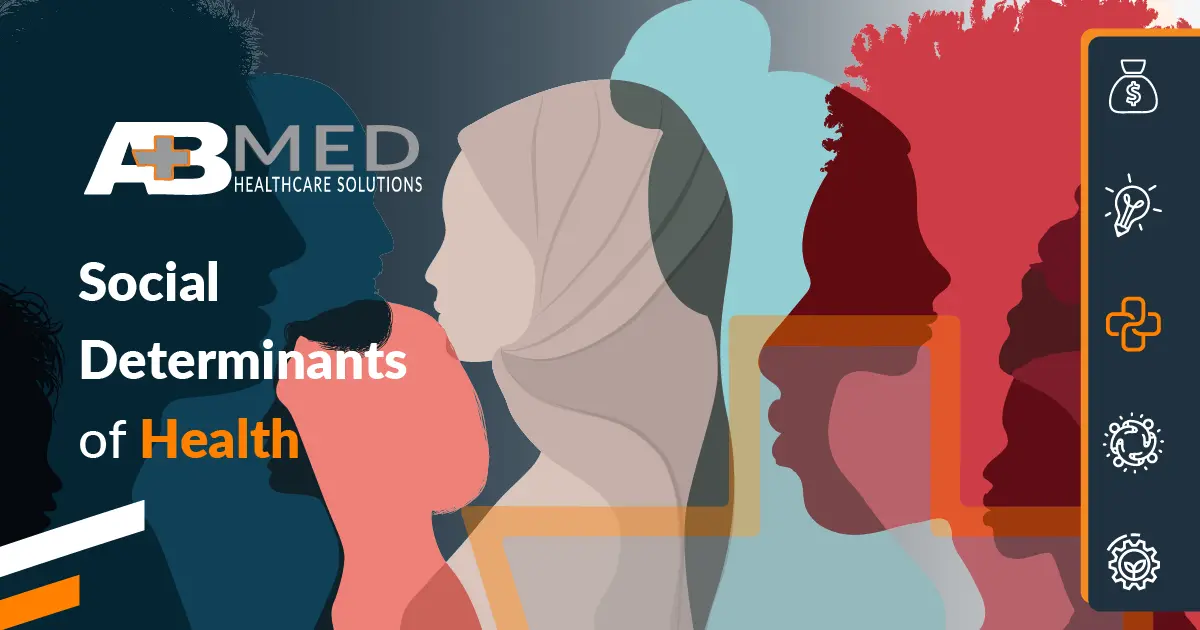4 Conversations to have with men about health
As with many things, COVID-19 has put men’s health in new perspective. Throughout the pandemic, men have statistically been more likely to have a severe presentation of SARS-COV-2 (56% vs 44%), as well as a higher death rate (69% vs 31%). While research about why these particular disparities were so stark is ongoing and currently inconclusive, initial statistics like these have reminded the healthcare community of the many factors affecting men’s health—and the reasons it’s important to take men’s health seriously.
Here are a few key concerns related to men’s health that have been brought into greater focus because of COVID-19.
Men may be less likely to adopt prevention practices.
While data surrounding specific COVID-19 responses is still emerging, it indicates—and many experts have speculated—that men are less likely to take COVID-19 precautions, as well as being less likely to get the COVID-19 vaccine. In the United States, some research has suggested a link between perceptions of “macho” practices of masculinity as increasing the likelihood of not practicing prevention measures like mask use and social distancing, as well as skepticism of advice or recommendations from health experts.
While this is certainly a major concern during the pandemic, healthcare professionals should also consider how these patterns might affect men’s health beyond COVID-19, and should look for ways to build better relationships with male-identified patients, foster open conversation, and increase trust between healthcare professionals and men in their communities.
COVID-19 healthcare research tends to focus on women’s health over men’s health.
Research around COVID-19 has tended to focus on women’s health more often than men’s health. With a variety of historical and social factors affecting women’s health, understanding how COVID-19 affects the female population is certainly important. However, as we continue distributing the COVID-19 vaccine and working toward a “new normal,” it’s important to remember how little we actually know about the long-term effects of the pandemic on our male patients.
Whether we’re encouraging male patients to get the COVID-19 vaccine or talking through other health issues, including underlying conditions that may be risk factors for COVID-19 or other issues related to having lived through a pandemic (e.g., weight gain, increased stress, etc.), it’s important to take the time to listen to our patients, understand their concerns, and meet them where they are.
Men are less likely to go to a doctor or healthcare facility than women.
While research on COVID-19 is still ongoing, research about men’s general behavior around healthcare has been fairly straightforward for years. For example, men are both significantly less likely than women to see their doctor, and, even if they do see their doctor, are less likely to speak openly about their health. There are many different reasons for these trends, and how and why they show up can vary widely by region and socioeconomic status.
Previously discussed issues—such as ensuring male patients feel listened to and have a sense of trust in their doctor—certainly play a role here, it’s also important to note that healthcare facilities can’t only think about the health of the men who actually come into their facilities. It’s also more important than ever—after a year of shelter at home measures—to do outreach into the community and encourage people, especially men, to take their health seriously.

Men are less likely to seek mental health care.
While we know COVID-19 has had profound effects on everyone’s mental health—ranging from school age children to older adults—the impact on men’s mental health is compounded by already existing disparities in this area. Men are historically less likely than women to seek mental health diagnosis or treatment, and often will not ask their doctors about mental health concerns.
Now more than ever, every healthcare facility, regardless of specialty, must be vigilant regarding mental health. Increased screening, prevention programs, and proactive discussions and mental health care must be central to every healthcare facility. In particular, healthcare organizations who are serious about men’s health care have to be proactive in working with stakeholders and public health offices in their communities to end stigma around men’s mental health, increase access to care, and encourage open conversation about mental health.
The importance of an open dialogue
No list of how to improve men’s health is comprehensive, and this one is no exception. However, as we’ve pointed out throughout this article, one of the most important parts of improving men’s healthcare is improving conversation. Whether that means doing community outreach, partnering with community organizations or local and county health departments, or using social media or other outreach strategies to educate the public, ensuring that issues that affect men’s health are at the forefront of our conversations is key.
Additionally, educating everyone in your organization about issues that relate to men’s health, including early screening and prevention practices, can help create a culture that supports men’s health and equips every member of your organization to notice and support men’s health in the community.
Lastly, we also recognize that men’s health looks different in different regions—so we want to hear from you! What struggles do you see affecting men’s health in your community? What efforts are you taking during Men’s Health Month to support men’s health? Let’s Connect.
REFERENCES & RESOURCES
- Wittert, G. and McLachlan, R. (2020). Covid-19: Spiking a focus on men’s health. Obesity Research & Clinical Practice, [online] 14(4), pp.293–294. Available at: https://www.ncbi.nlm.nih.gov/pmc/articles/PMC7437404/ [Accessed 10 Jun. 2021].
- Fairleigh Dickinson University. (2021). FDU Poll finds masculinity is a major risk factor for COVID-19. [online] Available at: https://www.fdu.edu/news/fdu-poll-finds-masculinity-is-a-major-risk-factor-for-covid-19/ [Accessed 10 Jun. 2021].
- www.medicalnewstoday.com. (2021). Men’s health: Gaps in COVID-19 policy. [online] Available at: https://www.medicalnewstoday.com/articles/why-covid-19-policy-should-explicitly-consider-mens-health#Narrow-policy-options [Accessed 10 Jun. 2021].
- www.nimh.nih.gov. (n.d.). NIMH» Men and Mental Health. [online] Available at: https://www.nimh.nih.gov/health/topics/men-and-mental-health/#:~:text=Some%20of%20the%20mental%20disorders%20affecting%20men%20include%3A [Accessed 10 Jun. 2021].
- Ianzito, C. (n.d.). Survey Reveals Why Men Avoid Going to the Doctor. [online] AARP. Available at: https://www.aarp.org/health/healthy-living/info-2019/survey-men-avoiding-doctors.html.
By: Erik McLaughlin MD, MPH and Aikaterini Papadopoulou, B.Arch






